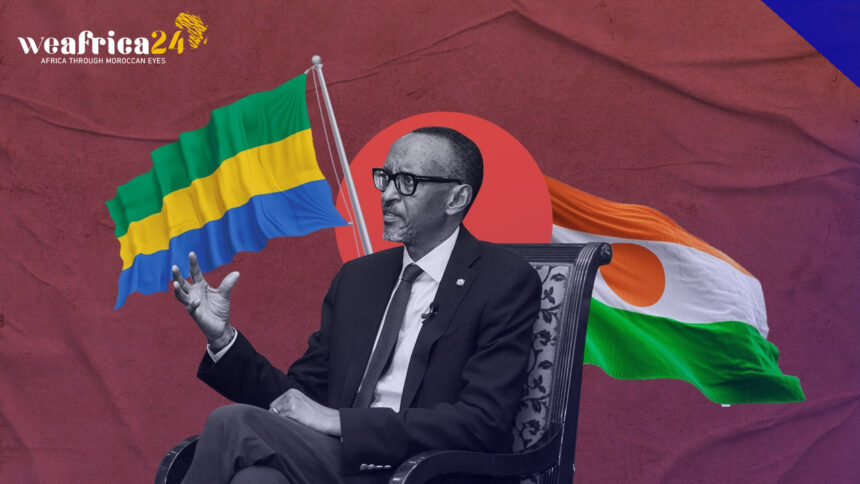Rwandan President Paul Kagame’s recent decision to retire several top military officers has raised questions about its underlying motivations. Some speculate that it could be a strategic move to prevent any potential threats to his rule, given recent coup d’état incidents in African nations like Niger and Gabon. This report critically examines Kagame’s military shake-up, its possible motivations, and the broader implications for Rwanda’s political landscape.
In a surprise move, President Paul Kagame of Rwanda recently announced the retirement of several high-ranking military officers, including General Patrick Nyamvumba, Chief of Defence Staff, and Lieutenant General Jacques Musemakweli, the Army Chief of Staff. Kagame’s decision has prompted speculation about its timing and motivations.
The Timing of the Military Shake-up
The timing of Kagame’s military shake-up coincides with recent coup d’état attempts in neighboring African countries, such as Niger and Gabon. These incidents have heightened concerns about political stability in the region.
Some analysts argue that Kagame may be taking a preemptive measure to secure his regime and prevent any potential threats. The retirements of top military officials could be aimed at ensuring the loyalty of the armed forces and maintaining control.
Potential Motivations and Implications
Consolidation of Power
Kagame’s presidency has been marked by a consolidation of power, with constitutional changes allowing him to extend his rule. The retirements may be seen as part of a broader strategy to maintain a tight grip on the country’s leadership.
While Kagame has been credited with bringing stability and economic growth to Rwanda, concerns about political pluralism and civil liberties persist. The retirements could be an attempt to preempt any dissident factions within the military.
Political Background
Genocide and Post-Genocide Reconstruction
Rwanda’s recent history is marred by the 1994 genocide in which an estimated 800,000 people, primarily Tutsis, were brutally killed. Kagame, a Tutsi, led the Rwandan Patriotic Front (RPF) forces to halt the genocide. Following the genocide, Kagame has been credited with leading the nation’s impressive recovery and reconstruction efforts.
Authoritarian Rule: Kagame’s leadership has been characterized by a strong central government, limited political opposition, and restrictions on free speech and media. His party, the Rwandan Patriotic Front (RPF), has maintained a firm grip on power through a series of electoral victories.
Constitutional Amendments: To enable his continued rule, Kagame oversaw constitutional amendments that removed presidential term limits in 2015, allowing him to run for a third term in 2017.
Stability vs. Democratic Principles
In recent years, African nations like Niger and Gabon have experienced coup d’état attempts, raising questions about political stability in the region. Kagame’s prolonged rule could provoke dissent within the country, potentially leading to unrest or challenges to his leadership.
Paul’s administration has benefited from foreign aid and investment, partly due to Rwanda’s economic stability. However, his fourth-term bid may lead to a reassessment by international partners concerned about political stability and democratic governance.
President Paul Kagame’s announcement of his candidacy for a fourth term in Rwanda comes against a complex political backdrop. While he is credited with bringing stability and economic growth to the country, concerns about democratic principles and political pluralism persist.







